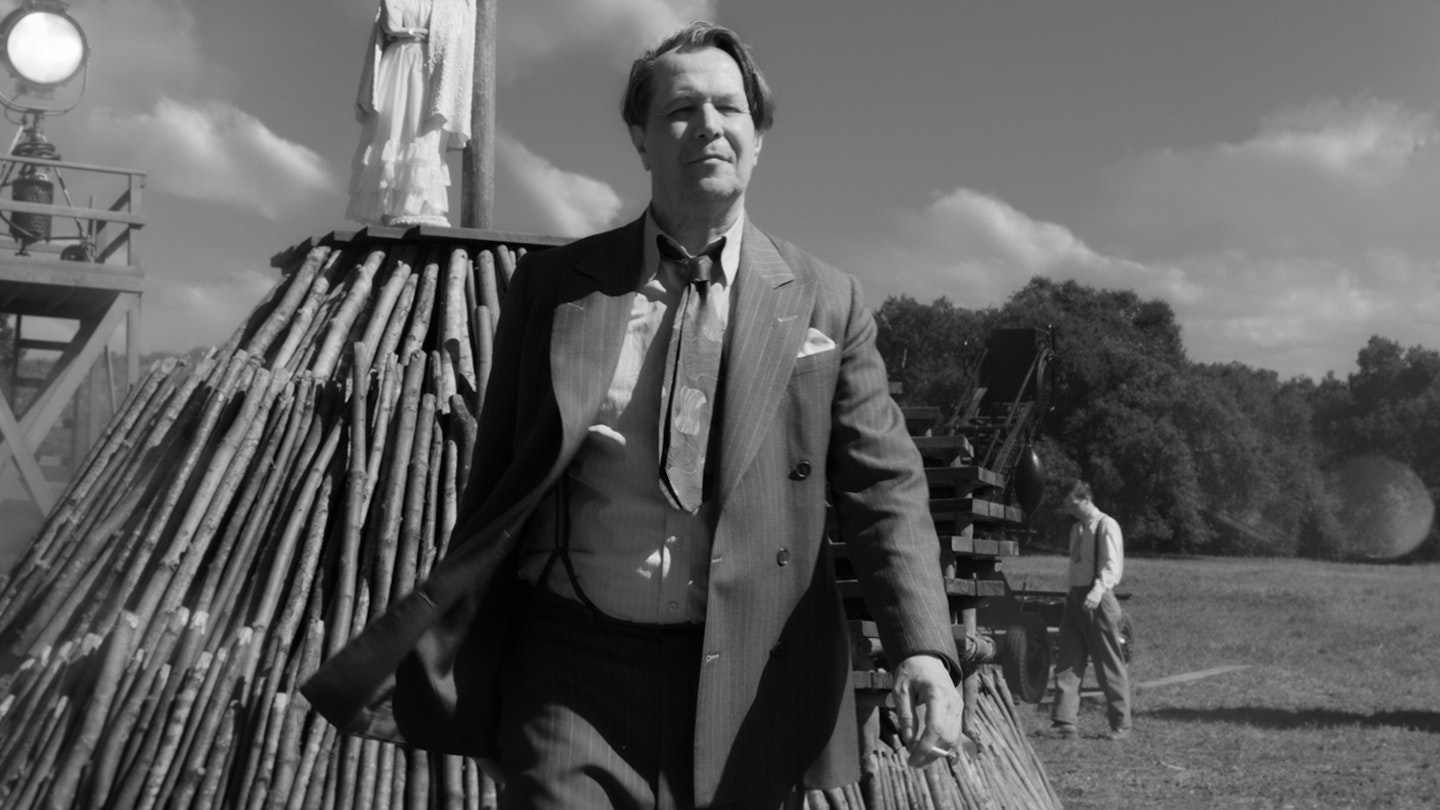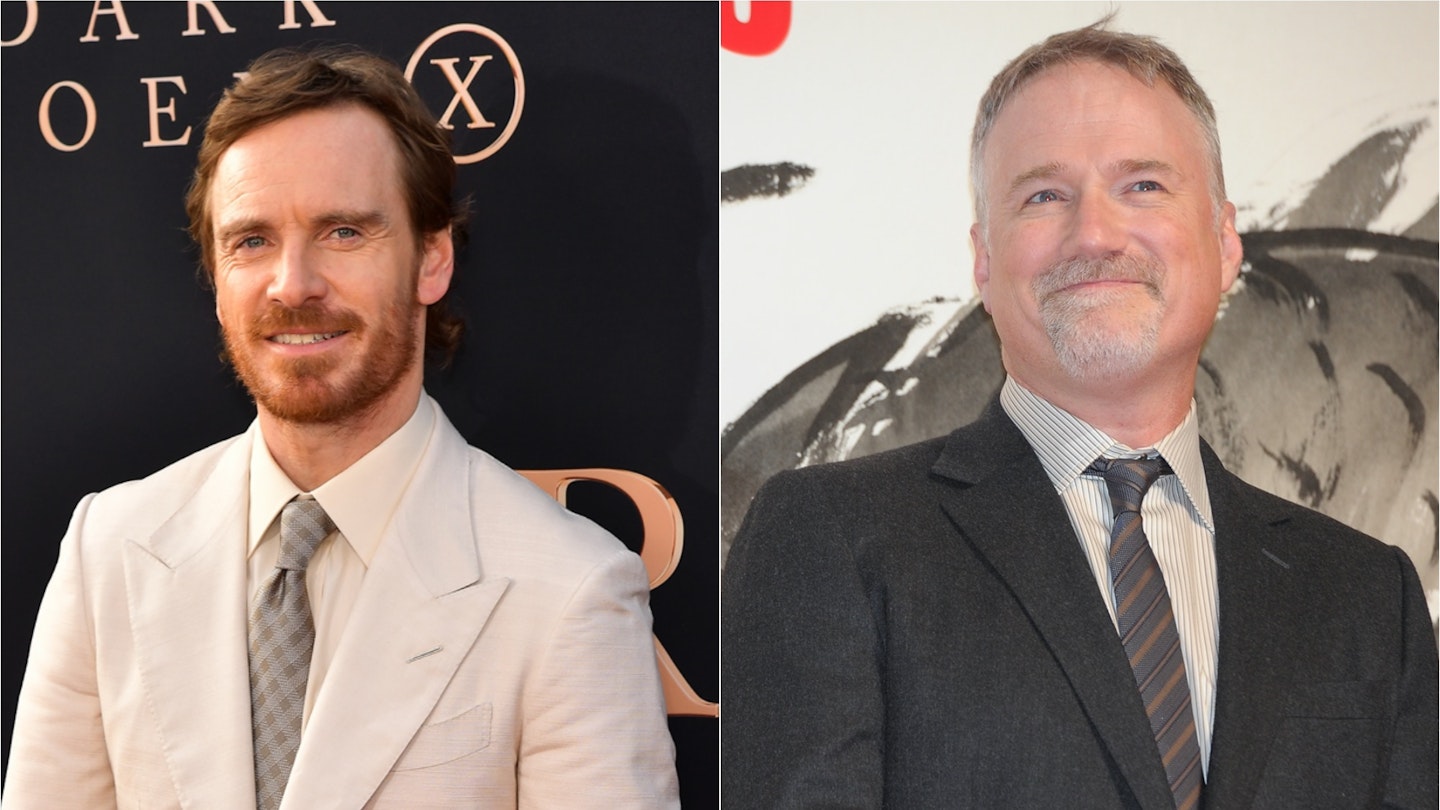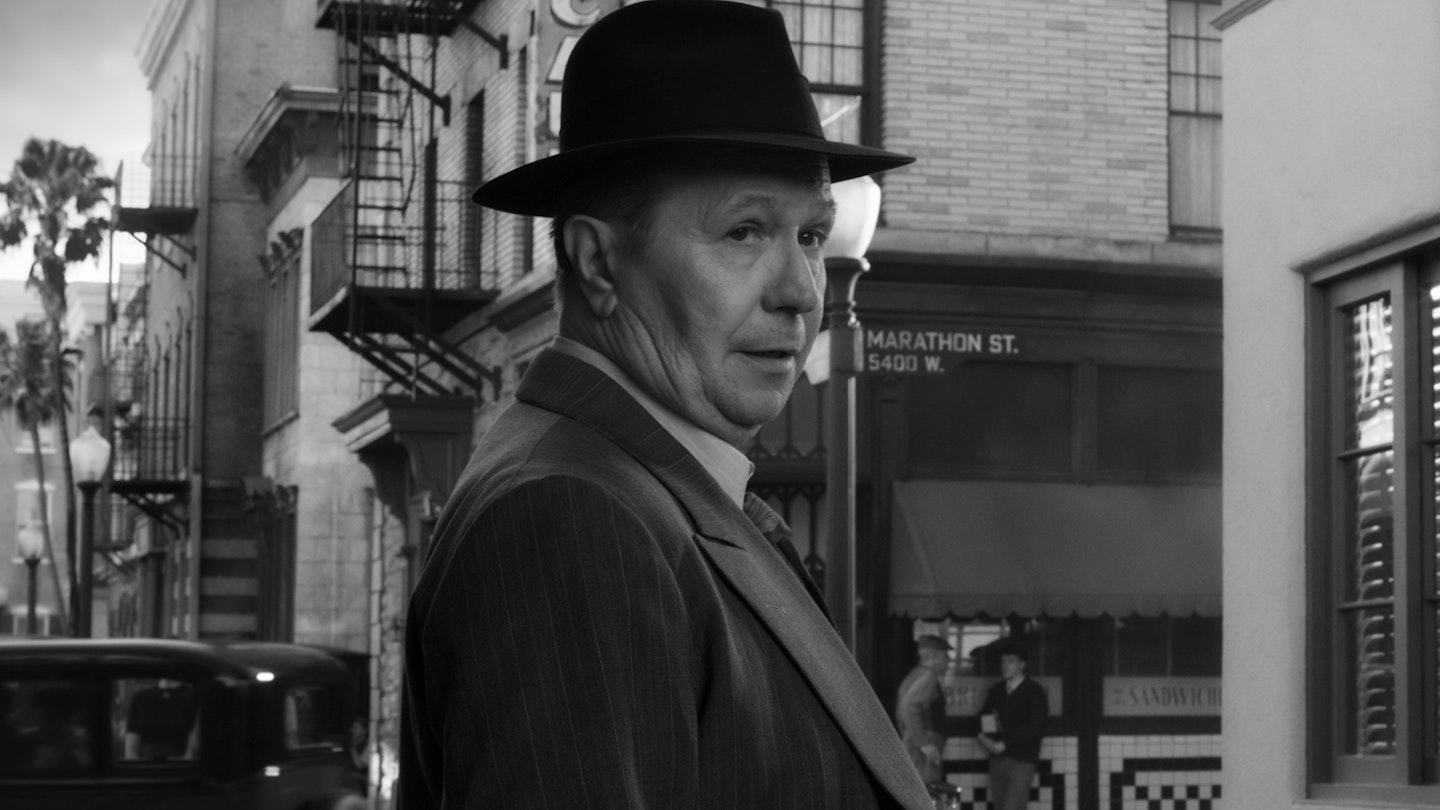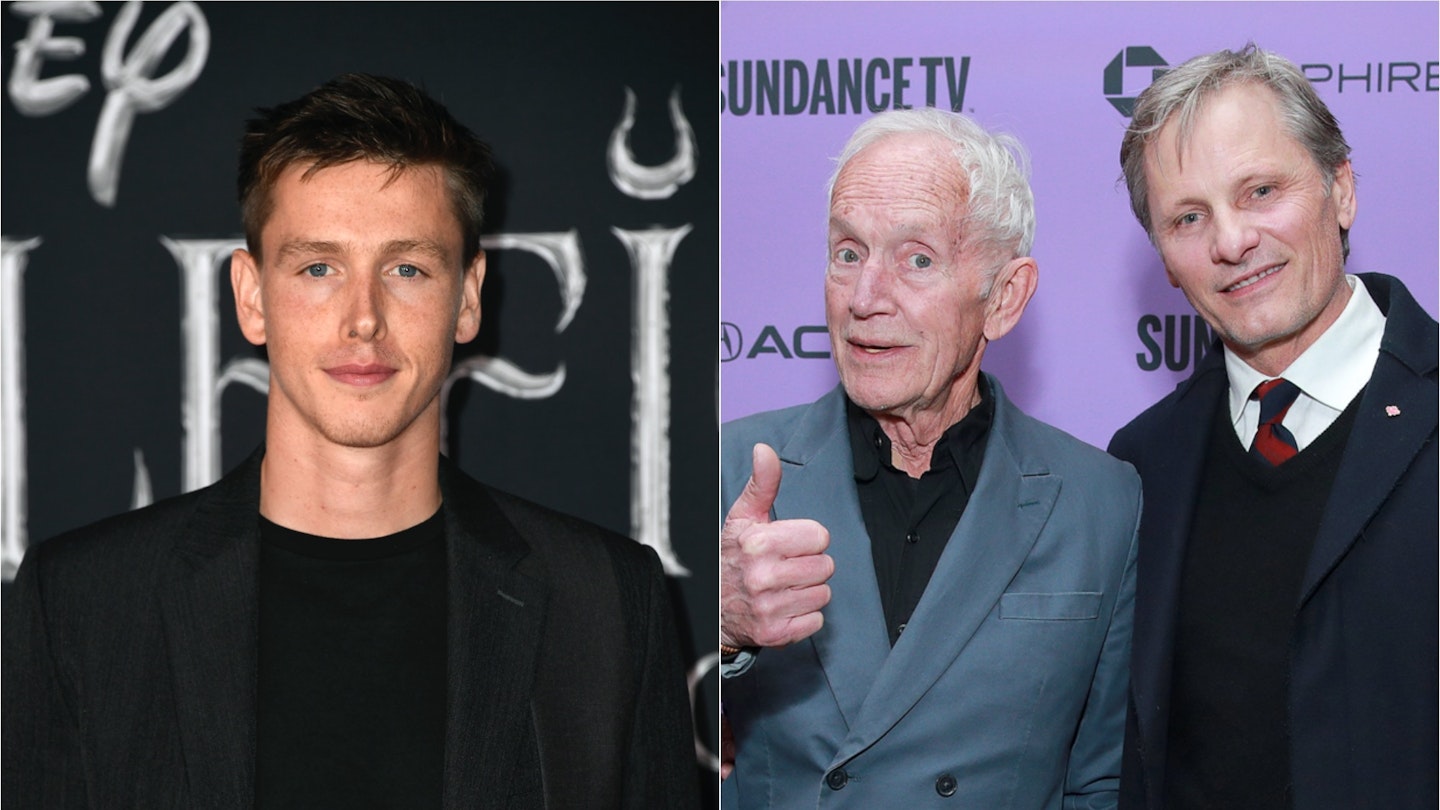Mank, David Fincher’s 11th feature film, ends on the words “the magic of the movies”. Don’t be fooled. True to form, Fincher’s first film since 2014’s Gone Girl isn’t a gooey-eyed Valentine to the dream factory. Instead it’s a clear-eyed, warts ’n’ all love letter to Hollywood, alive to both the glamour and messy realities of the film industry and the act of creation itself — all wrapped in some of the most gorgeous filmmaking craft imaginable.
A labour of love for Fincher — the script was written by his late father Jack before the director made Alien3 — it is a dense, rich work about (among other things) the intersection between film and politics, alcoholism, media manipulation, Hollywood lore, wasted talent and the struggle to retain integrity even if to do so is to your own detriment. It’s a triumphant return to feature-form moviemaking for the director after his small-screen stint on serial-killer drama Mindhunter and animated anthology Love Death + Robots, even if there is an irony that such a paean to the glory of cinema is most likely going to experienced on TV or — God forbid — a phone.
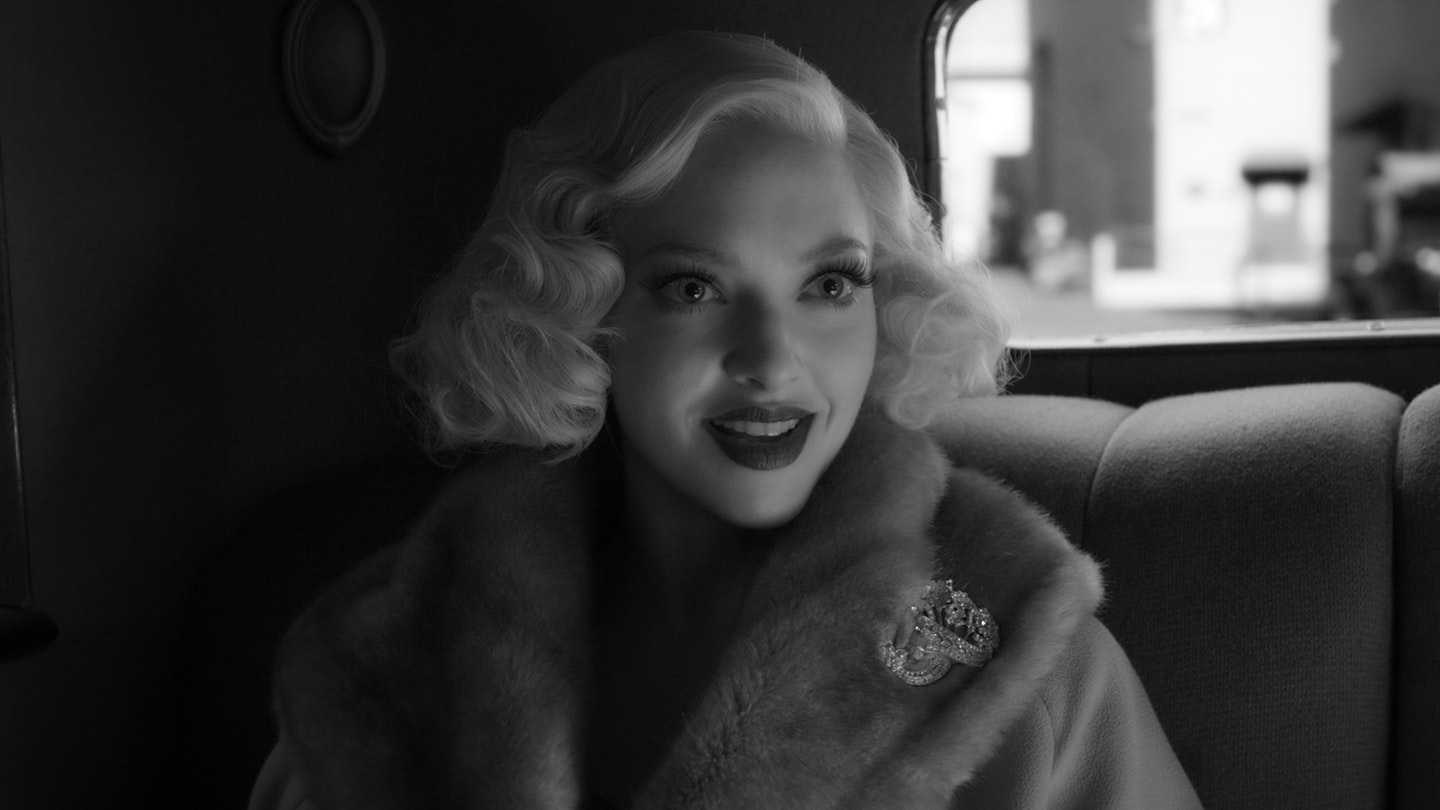
There have been dramatisations of the production of Citizen Kane before — chiefly the Ridley Scott-produced RK0 281, named for Kane’s production number — but Mank takes a more granular approach. Rather than a soup-to-nuts ‘making of’, it’s a deep dive into the mindset and events that created it, woven over two distinct timelines. The present tense sees washed-up screenwriter Herman J. Mankiewicz (Gary Oldman), a sharp but mostly drunk wit, holed up in the North Verde Ranch in the Mojave Desert at the behest of theatrical wunderkind Orson Welles (Tom Burke) in order to write a screenplay skewering newspaper magnate William Randolph Hearst (Charles Dance). Convalescing after a car crash, the laid-up scribe has just 90 days (or as Welles puts it, 60 days with 30 days to “noodle”) to dictate the opus to Rita Alexander (Lily Collins), an English secretary who can take dictation “like a clairvoyant”. What follows is a beautifully staged and played chamber piece, a battle of wits between Mank and Welles cohort John Houseman (Sam Troughton) to make his deadline, between Mank and Rita to keep the writer dry, and between Mank and himself to remain true to his talent.
Mank isn’t just some nostalgic reverie; it also taps into contemporary concerns.
Fincher uses Burke’s Welles sparingly, often as a disembodied presence on the phone, but the actor captures both Welles’ instantly recognisable voice and you’d-follow-him-anywhere charm. The film only hints at the controversial battle for screen credit — Mankiewicz was originally going to receive no acknowledgement, but in end the writer and Welles shared credit and won Oscars, although neither of them collected the statuettes— and while it is clear the film comes down on the side of Mank, it presents an even-handed portrait of the director, too. These sections also benefit from a superb Collins, who gives Rita a backbone while adding more vulnerable notes as a woman whose sweetheart is away fighting in World War II.
The film’s second strand, flitting back and forth to Mank’s earlier career in ’30s Hollywood, is complicated and demanding. Fincher takes the high ground, mostly eschewing cause and effect in etching the events that informed Kane’s creation (thankfully no-one falls off a sled). In the film’s liveliest section, Mank’s early escapades are a joyous (but still grounded) evocation of ’30s Hollywood — be it Mank and his Algonquin gang spitballing horror film ideas for David O. Selznick (Toby Leonard Moore) and Josef Von Sternberg (Paul Fox), or a glorious walk-and-talk with Louis B. Mayer (Arliss Howard) — sutured with insider detail and anecdotes about the Golden Age; be it Mayer telling the host of MGM stars that they should take a pay cut, or anger at the Marx Brothers grilling hot dogs on the open fire in Mayer’s office. From the grandiloquent, old-school title card onwards, it’s all a film buff’s dream (the rumoured genitalia origin of ‘Rosebud’ is neatly invoked), the movie industry scenes often infected with the rat-a-tat delivery and panache of a screwball comedy. In this sense, the script, polished by Forrest Gump scribe Eric Roth and Fincher himself, takes as much delight in language as Aaron Sorkin’s verbal pyrotechnics for The Social Network.
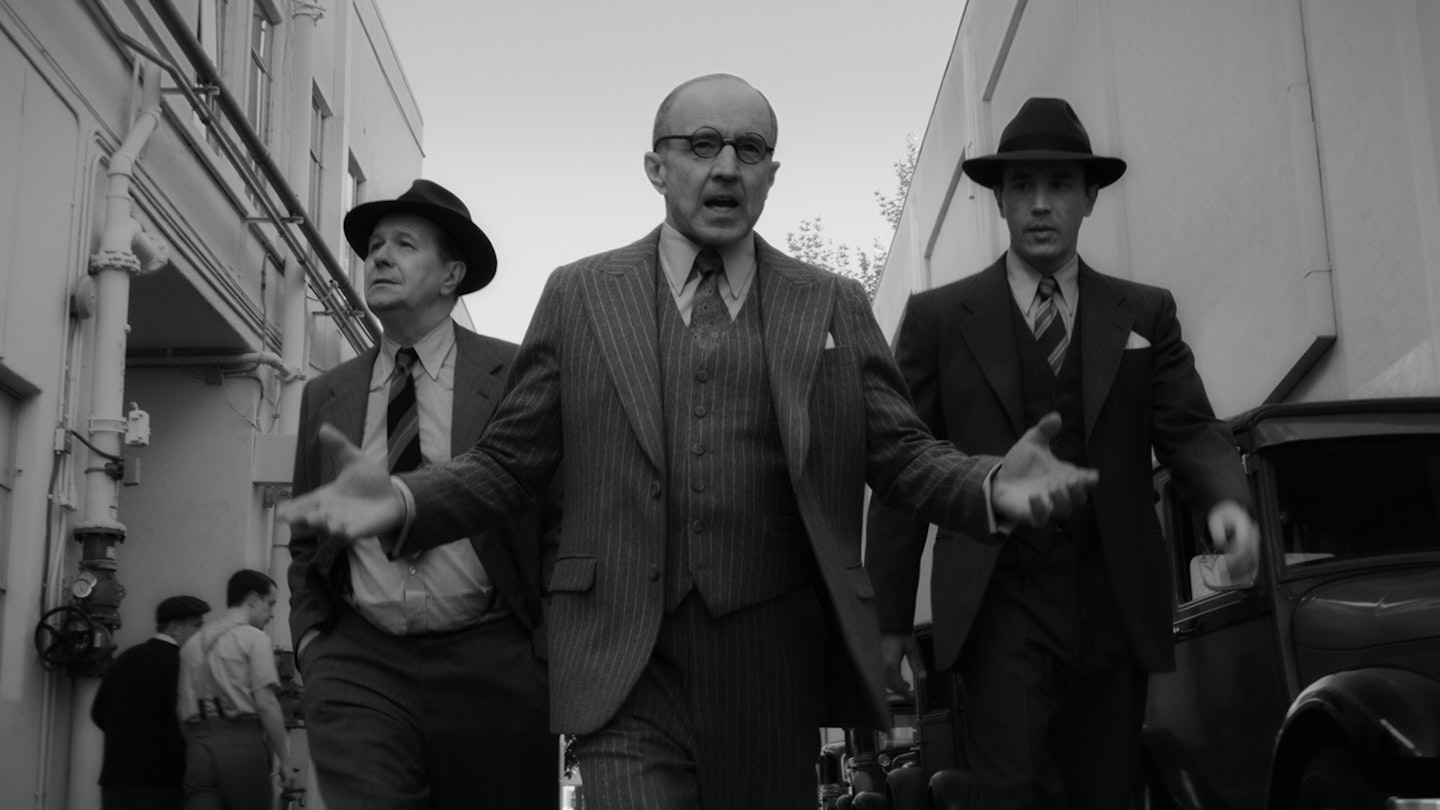
But Mank isn’t just some nostalgic reverie; it also taps into contemporary concerns. The raw material for Charles Foster Kane arrives when Mank comes into the orbit of William Randolph Hearst (there’s a brilliant ensemble discussion about Hitler and politics at a Hearst shindig). Mank has a ringside seat as Mayer and second lieutenant Irving Thalberg (Ferdinand Kingsley), in cahoots with Hearst, begin to sway the election for the Governor Of California in favour of Republican Frank Merriam, via fake newsreels and radio broadcasts discrediting Democrat Upton Sinclair. Throw in fears about the future of cinemas and the resonances with 2020 are impossible to ignore. Mank finds an ally in Hearst’s hostess and partner, actor Marion Davies, the inspiration for Susan Alexander in Kane. A career-best Amanda Seyfried plays Davies as a worldly woman, smarter than she lets on, fully in control of her persona, who becomes a like-mind for Mank to hang on to (listen as she slips into her own Brooklyn accent around the writer). From walking around Hearst’s zoological gardens (a dead spit for Kane’s Xanadu) discussing her range, to pleading with Mank to go easy on Hearst in his script, Seyfried confirms her dramatic chops in every moment.
All of this is captured in stunning black-and-white, at once modern and elegant. Fincher has shot black-and-white before in his pop promo days, yet here the softened imagery feels like it belongs in the ’30s/’40s, a call back compounded by the compressed, crackling soundtrack and an old-school reel-change complete with ‘cigarette burns’ (cue marks to indicate when a new reel is needed that also made a cameo in Fight Club). There are nods to Kane’s imagery and style — a bottle slipping from the hand to the floor; Mank in bed as the silhouetted figure of Welles looms large; a bravura election-night montage — but nothing that is blatant or kitsch. Mindhunter DP Erik Messerschmidt’s cinematography is all inky blacks and over-exposed windows, capturing a world that is at once glamorous (witness Davies leaning forward in a car) and grubby, enhanced by Trent Reznor and Atticus Ross’ score, flipping between high-tempo jazz and Bernard Herrmann-esque brood.
The fealty to the ’40s also spills over into an old-school, pre-Method-acting style. Mank is stuffed full of great performances, from Howard as Mayer and Tuppence Middleton as Mank’s long-suffering wife, “poor” Sara, to Tom Pelphrey as Mank’s younger, better-looking brother Joseph — who shares his brother’s intellectual aspirations and sense of having to slum it in Hollywood — and Charles Dance as Hearst, deliciously delivering the parable of the organ grinder’s monkey. But this is Oldman’s film. Practically in every frame, he’s vibrant as a perma-sozzled court jester, but tragic as a man who grapples with his gifts (“I should have done something by now”), and slowly begins to realise the weight of his own words. Welles once — perhaps wrongly — dismissed Citizen Kane as “dollar-book Freud”, explaining the complexity of a life in a single solution. Oldman and Fincher don’t fall into the same traps. The actor might give a big performance — a last-reel outburst at a fancy-dress dinner is pure theatre — but across the two timelines he perfectly etches a man who finds the resolve to stay true to his beliefs and instincts that ultimately results in his best work. In these truths and beauty, Mank delivers the “magic of the movies” in its own unique way.
